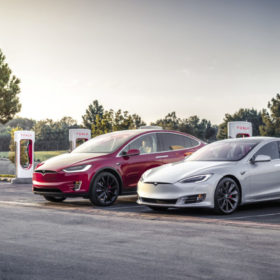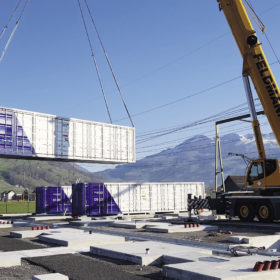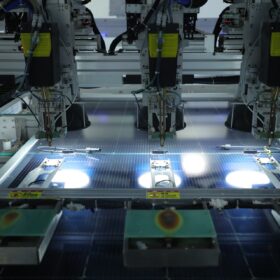The long read: The state of solid-state batteries
Solid-state batteries hold the potential to overcome many of the limitations of today’s lithium-ion storage technologies. Though they have been a research topic for more than 30 years, and more recently have seen billions of dollars poured into their development by leading carmakers and electronics giants, commercial development is still extremely limited. Major roadblocks remain in the way of both device performance and industrial-scale processing. pv magazine recently caught up with solid-state’s research community for a look at where the technology stands.
Odisha invites EoI for Konark solarization
Manufacturers and integrators of solar-based drinking water kiosks, solar trees, solar street lighting systems, and e-rickshaw charging infrastructure can submit their interest by August 29.
Siemens gets CCI nod to acquire C&S Electric
Certain businesses such as engineering, procurement, and construction shall be retained by the existing promoters of C&S Electric which has five operational renewable energy (four wind and one solar power) projects with a combined capacity of 174 MW.
Manufacturers want 50% basic customs duty on solar imports
India imported solar cells and modules worth $1.3 billion from China in FY2019-20. Domestic manufacturers have demanded a level playing field to compete against cheaper imports.
Keltron to set up a supercapacitor manufacturing unit in Kannur
The state-owned electronics manufacturer has signed a memorandum of understanding for technology transfer with Vikram Sarabhai Space Centre of Indian Space Research Organisation.
REIL seeks 6500 quantities of 330Wp solar modules
Bids are invited from Indian manufacturers to supply polycrystalline solar modules with an efficiency of a minimum 16.75%. Bidding closes on September 3.
Modi loosens the purse strings to help struggling state utilities
Covid-19 hits to demand and bill payment collection have worsened the plight of the nation’s already debt-crippled power distribution companies, prompting the government to order an exceptional relaxation of lending limits.
Energy storage investment to approach $10bn in 2025
Analyst IHS Markit has predicted storage will rebound this year following its first year-on-year decline in 2019. The technology is being rolled out at pace despite Covid-19 with state-level policies set to keep the US the global capital for the next five years.
CERC approves trading in green term-ahead market
The market-based mechanism will allow resource-rich and resource-deficit States to trade renewable energy and balance their renewable purchase obligation (RPO) targets.
India could add 2.5 GW of big solar in second half
Some 1 GW of utility scale project capacity was added to the end of June.















